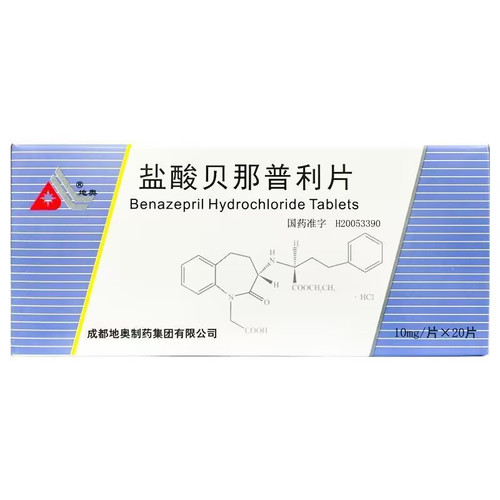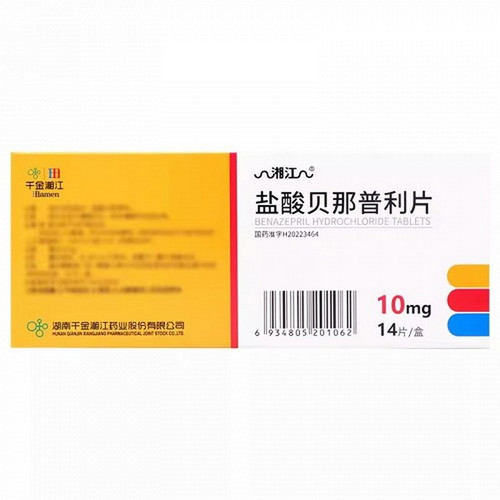Product Overview
[Drug Name]
Generic Name: Arotinolol Hydrochloride Tablets
Trade Name: Aralmar
English Name: Arotinolol Hydrochloride Tablets
Chinese Pinyin: Arotinolol Hydrochloride Tablets
[Ingredients]
Arotinolol Hydrochloride
[Appearance]
Pale orange-yellow sugar-coated tablets
[Indications]
Essential hypertension (mild to moderate), angina pectoris, tachycardia, essential tremor
[Dosage]
Essential hypertension (mild to moderate), angina pectoris, tachycardia: 10-15 mg twice daily. For essential tremor: Start with 10 mg/day. If response is inadequate, increase to 20 mg orally in 2-3 divided doses, up to a maximum of 30 mg/day.
[Adverse Reactions]
Circulatory System: Heart failure and atrioventricular block may occur occasionally; bradycardia may occur occasionally; chest pain, chest discomfort, dizziness, unsteadiness, and hypotension may occur occasionally; atrial fibrillation, peripheral circulatory disorders (Raynaud's syndrome, cold sensation, etc.), palpitations, and shortness of breath may occur occasionally.
Psychoneurological System: Fatigue, tiredness, headache, heaviness of the head, and drowsiness may occur occasionally. Depression and insomnia may occur occasionally. Digestive System: Loose stools, diarrhea, abdominal discomfort, abdominal pain, nausea, and vomiting may occur occasionally. Loss of appetite, indigestion, abdominal bloating, and constipation may occur occasionally. Elevated GOT and GPT levels may occur occasionally. Elevated ALP and LDH levels may occur occasionally.
[Contraindications]
This drug should not be used in patients with a history of allergy to any of its components; those with severe bradycardia, atrioventricular block, sinoatrial block, diabetic ketoacidosis, metabolic acidosis, those at risk of bronchial asthma and bronchospasm, cardiogenic shock, right heart failure due to pulmonary hypertension, or congestive heart failure.
[Precautions]
This drug should be used with caution in patients with possible congestive heart failure, idiopathic hypoglycemia, inadequately controlled diabetes, patients fasting for extended periods, patients with severe liver or kidney dysfunction, or patients with peripheral circulatory disorders (such as Raynaud's syndrome and intermittent claudication).
When used long-term, regular cardiac function tests (heart rate, blood pressure, electrocardiogram, X-ray, etc.) are required. If bradycardia or hypotension occurs, the dose should be reduced or discontinued. Atropine may be used if necessary. Liver and kidney function must be monitored.
This drug should not be used within 48 hours before surgery. When used in patients with pheochromocytoma, an alpha-receptor blocker must always be used in combination. This drug may affect the ability to drive and operate machinery.
[Use in Special Populations]
Precautions for Children:
The safety of this drug in premature infants, newborns, nursing infants, and young children has not been established.
Precautions for Pregnancy and Lactation:
1. Do not use in pregnant women or women of childbearing potential.
2. Avoid breastfeeding while taking this drug.
Precautions for Elderly Patients:
When used in elderly patients, the following precautions should be taken. Start with a low dose (e.g., 5 mg per dose) and administer the drug cautiously while observing the patient's condition. 1. Excessive blood pressure reduction is generally not recommended in elderly patients (as it may cause cerebral thrombosis, etc.). 2. Elderly patients often have impaired cardiac function, which can easily lead to excessive blood pressure drop and bradycardia. 3. If discontinuation of the drug is necessary, the dose should be reduced slowly.
[Drug Interactions]
Combined use with drugs that inhibit the sympathetic nervous system (e.g., reserpine) may sometimes cause symptoms of excessive suppression. Combination use with hypoglycemic agents may sometimes enhance the hypoglycemic effect. Combined use of calcium channel blockers can sometimes enhance each other's effects. Clonidine may enhance rebound symptoms after drug discontinuation. Combined use of dipyramide, procainamide, and amarin may cause symptoms of excessive cardiac suppression.
[Pharmacological Actions]
This drug has alpha- and beta-receptor blocking properties, with an action ratio of approximately 1:8. Through appropriate alpha-blocking effects, this drug exhibits the antihypertensive effect of beta-blocking without increasing peripheral vascular resistance.
[Strength] 10 mg
[Packaging Size] 10 mg x 10 tablets
[Expiration Date] 36 months
[Approval Number] National Medical Products Approval No. HJ20140676/National Medical Products Approval No. HJ20140677
[Manufacturer] Company Name: Sumitomo Pharmaceuticals (Suzhou) Co., Ltd.






